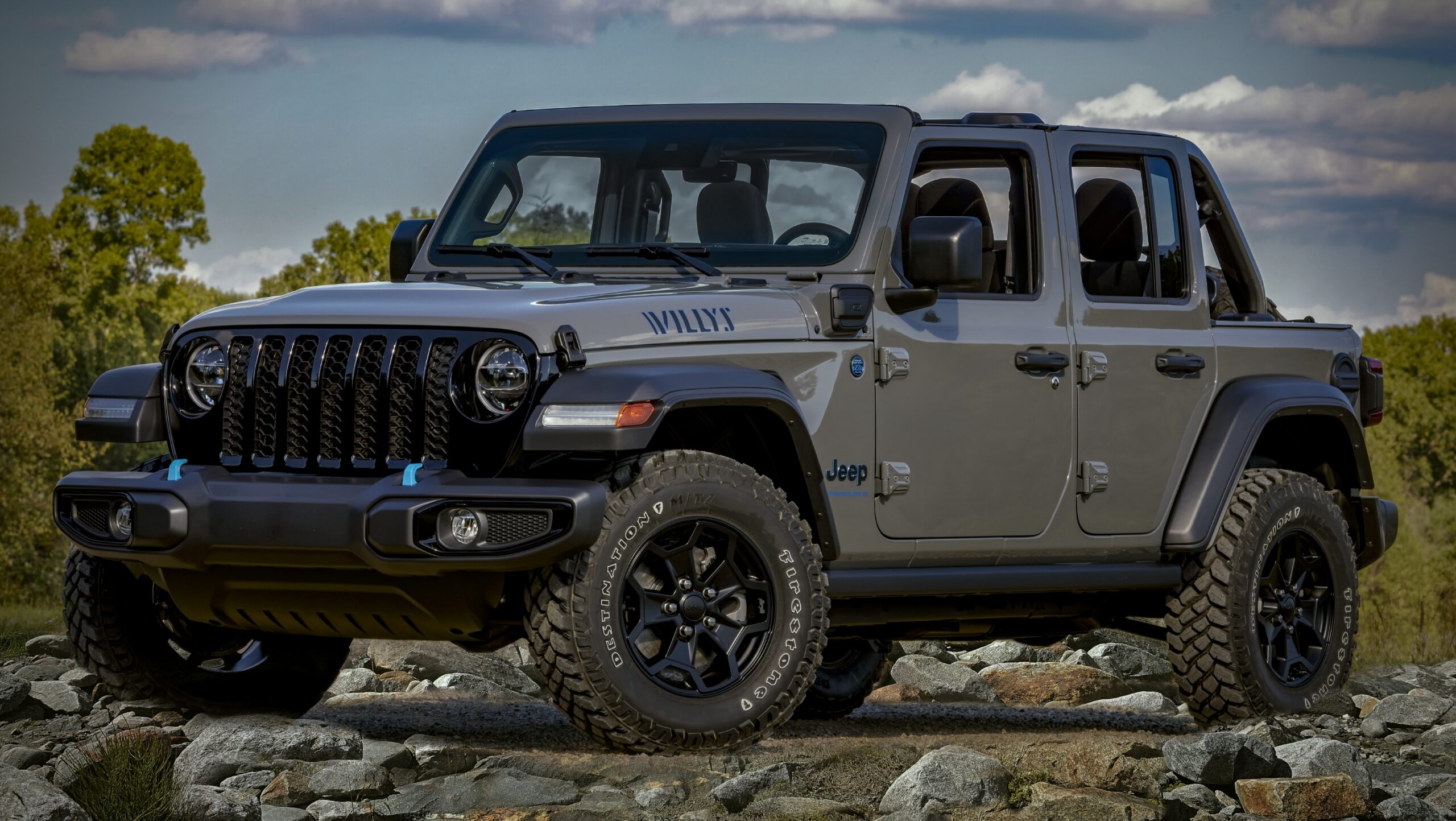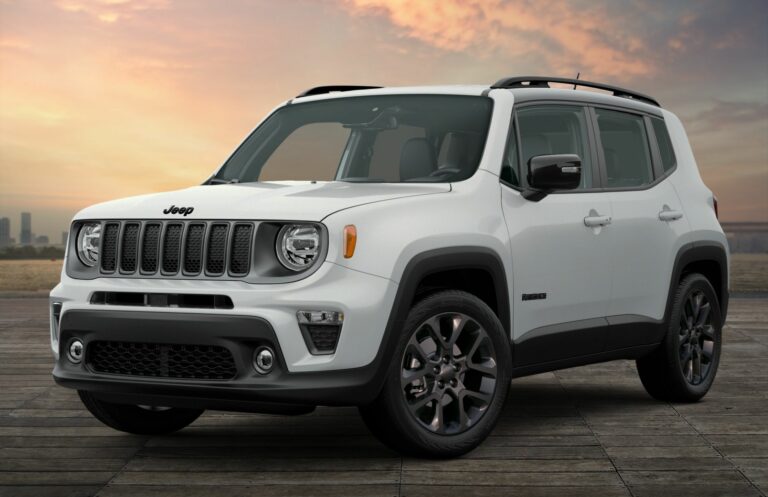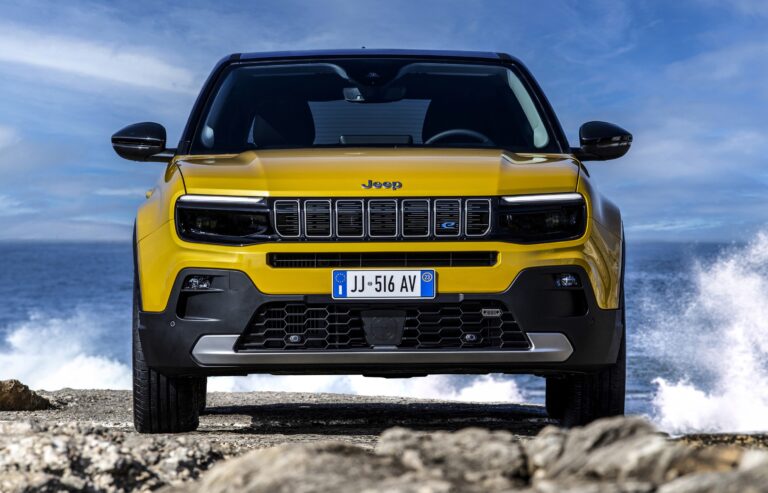Jeep Truck Old For Sale: A Comprehensive Buyer’s Guide
Jeep Truck Old For Sale: A Comprehensive Buyer’s Guide jeeps.truckstrend.com
Introduction: The Enduring Allure of Vintage Iron
The phrase "Jeep Truck Old For Sale" conjures images of rugged utility, timeless design, and a connection to American automotive heritage. Far more than just a vehicle, an old Jeep truck represents a piece of history, a canvas for restoration, or a dependable workhorse ready for new adventures. These aren’t just used vehicles; they are classic machines that embody a spirit of adventure and durability that modern trucks often strive to replicate.
Jeep Truck Old For Sale: A Comprehensive Buyer’s Guide
From the utilitarian Willys pickups that helped rebuild post-war America to the stylish and capable Gladiator and J-Series models, and the more contemporary Comanche, old Jeep trucks have carved a unique niche in the hearts of enthusiasts and collectors alike. Their appeal lies in their simple, robust mechanics, their iconic styling, and their undeniable off-road prowess. Whether you’re a seasoned collector looking for a pristine example, a DIY enthusiast eager for a restoration project, or someone seeking a unique and capable vehicle for work or play, delving into the world of old Jeep trucks for sale offers a rewarding journey. This comprehensive guide aims to equip you with the knowledge and insights needed to navigate this exciting market, ensuring you make an informed and satisfying purchase.
A Legacy of Utility and Adventure: The History of Jeep Trucks
To truly appreciate an old Jeep truck, it’s essential to understand its lineage. Jeep’s truck history is as long and storied as its civilian SUV line, beginning shortly after the original military Jeeps proved their worth:
- Willys-Overland Pickups (1947-1965): Among the first civilian trucks produced by Willys-Overland, these robust 4×4 pickups were direct descendants of the military Jeep, offering unparalleled off-road capability for their time. They were simple, tough, and became a staple in rural America.
- Jeep FC (Forward Control) Series (1956-1965): These distinctive cab-over-engine designs offered excellent visibility and maneuverability for their size, making them popular for commercial and utility applications. Their unique appearance makes them highly sought after by collectors today.
- Jeep Gladiator / J-Series (1962-1988): Arguably the most iconic of the classic Jeep trucks, the Gladiator (later renamed J-Series, including J10 and J20 models) shared its platform with the Wagoneer. These full-size trucks offered a blend of ruggedness, style, and comfort, evolving over decades to include various trim levels like the Honcho and Laredo. Their longevity speaks to their fundamental soundness.
- Jeep Comanche (MJ) (1986-1992): Based on the unibody Cherokee (XJ) platform, the Comanche was Jeep’s last true pickup truck until the modern Gladiator. It offered a more car-like ride while retaining significant off-road capability and utility, appealing to a younger generation of truck buyers.

Each of these models holds a unique place in automotive history, offering distinct characteristics and appeals to different types of buyers.
Why Buy an Old Jeep Truck? The Enduring Appeal
The decision to purchase an old Jeep truck goes beyond mere transportation; it’s often a lifestyle choice driven by several compelling factors:
- Nostalgia and Classic Appeal: For many, owning an old Jeep truck is about recapturing a piece of history or fulfilling a childhood dream. Their vintage aesthetics stand out in a sea of modern vehicles, turning heads and sparking conversations.
- Durability and Simplicity: Built in an era when vehicles were designed to be repaired, not replaced, old Jeep trucks are renowned for their rugged construction and straightforward mechanical systems. This often translates to easier diagnosis and repair, making them ideal for DIY enthusiasts.
- Off-Road Prowess: Jeep’s legendary 4×4 capability is inherent in these older trucks. Many models, especially the J-Series and Willys, were designed to tackle challenging terrain long before sophisticated electronics became standard.
- Investment Potential: While not all old Jeep trucks will skyrocket in value, well-maintained or expertly restored examples, particularly rare trims or early models, can appreciate over time, making them a tangible asset as well as a hobby.
- Customization and Restoration Canvas: These trucks offer an unparalleled opportunity for personalization. Whether you’re aiming for a factory-correct restoration, a custom restomod with modern amenities, or a heavily modified off-road beast, the possibilities are vast.
- Unique Utility: Beyond their classic charm, many old Jeep trucks still offer practical utility. They can haul, tow, and navigate challenging conditions, serving as functional vehicles for homesteads, trails, or even light commercial use.

Types of Old Jeep Trucks: Models to Seek Out
Understanding the different models is crucial for narrowing your search and setting realistic expectations.
- Willys-Overland Pickup (1947-1965):
- Pros: True vintage appeal, iconic, relatively simple mechanics.
- Cons: Parts can be scarce, typically slow by modern standards, comfort is minimal.
- Ideal for: Collectors, period-correct restorations, light farm work.
- Jeep FC (Forward Control) (1956-1965):
- Pros: Extremely unique styling, great visibility, excellent maneuverability.
- Cons: Parts can be very difficult to find, often require extensive restoration, not for highway cruising.
- Ideal for: Enthusiasts seeking a truly distinct vehicle, show trucks, promotional vehicles.
- Jeep Gladiator / J-Series (1962-1988):
- Pros: Classic full-size truck looks, robust drivetrains (AMC engines, Dana axles), relatively abundant parts (especially later models), strong aftermarket support, good off-road performance.
- Cons: Prone to rust, fuel economy can be poor, ride quality is truck-like.
- Ideal for: Daily driving (if well-maintained), off-roading, serious hauling, restomods. The J10 (half-ton) and J20 (three-quarter ton) offer different capacities.
- Jeep Comanche (MJ) (1986-1992):
- Pros: More modern driving experience, excellent fuel economy (especially with 4.0L inline-six), strong aftermarket support (shares many parts with XJ Cherokee), highly capable off-road.
- Cons: Unibody construction makes frame repair more complex, prone to rear frame rust.
- Ideal for: Daily drivers, light hauling, moderate off-roading, first-time classic truck owners.
Where to Find Old Jeep Trucks For Sale
The hunt for your ideal old Jeep truck can be an adventure in itself. Here are the most common avenues:
- Online Marketplaces:
- eBay Motors: Wide selection, auction format, good for gauging market value.
- Craigslist/Facebook Marketplace: Local listings, often good for project vehicles or finding deals. Be cautious of scams.
- Bring a Trailer / Hemmings Motor News: Higher-end, curated listings, often for more valuable or restored examples. Excellent for research.
- Specialized Forums and Classifieds: Websites like FSJ Network (for J-Series) or dedicated Jeep forums often have "for sale" sections where enthusiasts sell directly.
- Classic Car Dealerships and Auctions:
- Pros: Vetted vehicles, often come with some level of inspection or guarantee, can be good for turnkey examples.
- Cons: Higher prices, less room for negotiation.
- Local Classifieds and Word of Mouth: Don’t underestimate the power of community. Check local newspapers, bulletin boards, and let friends and family know what you’re looking for. Often, hidden gems are found this way.
- Auto Swaps and Car Shows: Many events have "for sale" sections. It’s a great way to see vehicles in person and talk directly with sellers.
Important Considerations Before Buying Your Old Jeep Truck
Purchasing an old vehicle, especially a classic truck, requires diligent research and a keen eye. Avoid common pitfalls by considering the following:
- Condition Assessment is Paramount: This is the most critical step.
- Rust: The #1 enemy. Check frame rails (especially near spring hangers and body mounts), floorboards, rocker panels, cab corners, bed floors, and wheel wells. Surface rust is manageable; extensive structural rust is a deal-breaker unless you’re prepared for major fabrication.
- Engine: Look for oil leaks, listen for knocks, excessive smoke (blue for oil, white for coolant, black for rich fuel), and abnormal noises. Check fluid levels and condition.
- Transmission and Drivetrain: Test all gears, including reverse. For 4x4s, engage 4-High and 4-Low to ensure the transfer case works. Listen for grinding or clunking. Check for differential leaks.
- Brakes: Ensure firm pedal feel, no pulling, and effective stopping. Inspect lines and master cylinder.
- Electrical System: Test all lights, gauges, wipers, heater/AC (if equipped), and power windows/locks. Wiring can degrade over time, leading to frustrating issues.
- Suspension and Steering: Look for worn bushings, tie rod ends, ball joints. Check for excessive play in the steering wheel.
- Interior: While often less critical than mechanicals, assess seat condition, dashboard cracks, and overall wear.
- Documentation: A clear title is non-negotiable. Service records, if available, can provide valuable insight into the vehicle’s history and maintenance.
- Originality vs. Modified: Decide if you want a historically accurate vehicle or one that has been customized. Originality often commands higher prices for collectors, while modifications can enhance performance or aesthetics for others.
- Budgeting Realistically: The purchase price is just the beginning. Factor in:
- Restoration/Repair Costs: Almost all old vehicles will need some work. Get quotes for anticipated repairs.
- Parts Availability: Research if parts for your chosen model are readily available.
- Insurance: Classic car insurance is often cheaper than standard auto insurance but may have mileage restrictions.
- Transportation: If buying out of state, factor in shipping costs.
- Professional Pre-Purchase Inspection (PPI): Unless you are an experienced mechanic specializing in vintage vehicles, pay a qualified, independent mechanic to inspect the truck. This small investment can save you thousands in hidden problems.
Tips for a Successful Purchase
- Do Your Homework: Research common issues for the specific model and year you’re interested in. Join online forums and ask questions.
- Be Patient: The perfect truck might not appear overnight. Don’t rush into a purchase.
- Negotiate: Always be prepared to negotiate the price, especially after a thorough inspection reveals issues.
- Test Drive Thoroughly: Drive at various speeds, on different road types, and engage all gears and 4×4 modes. Listen for unusual noises, feel for vibrations, and assess handling.
- Bring a Friend: A second set of eyes and ears can be invaluable during inspection and negotiation.
- Document Everything: Take photos of any damage or issues discussed with the seller. Get all agreements in writing.
Potential Challenges and Solutions
Owning an old Jeep truck comes with its unique set of challenges, but most have viable solutions:
- Challenge: Extensive Rust:
- Solution: For minor rust, DIY grinding and patching can work. For structural rust, professional welding and fabrication are required. In severe cases, a body swap or sourcing a rust-free frame may be the only option. Prevention (e.g., rust-proofing, storing indoors) is key.
- Challenge: Parts Availability:
- Solution: Many common wear items (brakes, suspension components, engine parts for popular engines like AMC 360 or GM 4.0L) are still available new. For rarer body panels or trim pieces, look to specialized aftermarket suppliers, NOS (New Old Stock) parts, junkyards, or even custom fabrication. Online forums are excellent for locating hard-to-find parts.
- Challenge: Mechanical Issues:
- Solution: Find a mechanic who specializes in vintage American vehicles or learn to do repairs yourself. The simplicity of older mechanics makes them ideal for learning. Invest in a good service manual. Many issues can be resolved with basic tools and some patience.
- Challenge: Insurance and Registration:
- Solution: Seek out specialized classic car insurance providers (e.g., Hagerty, Grundy) who understand the value and usage patterns of vintage vehicles. Research your state’s specific laws regarding vehicle registration, emissions testing, and historical plates for older vehicles.
- Challenge: Restoration Costs Spiraling:
- Solution: Set a realistic budget from the outset. Prioritize repairs based on safety and functionality. Consider a phased restoration, tackling one area at a time. Learn to do some work yourself to save labor costs. Get multiple quotes for professional work.
Selling Your Old Jeep Truck: Passing the Torch
While the article title focuses on "For Sale," it’s helpful to briefly touch upon the selling aspect, as it informs the buyer’s market. If you’re looking to sell an old Jeep truck, preparation is key:
- Clean and Detail: A clean vehicle presents better and suggests it’s been cared for.
- Address Minor Issues: Fixing small, inexpensive problems (e.g., burnt-out light bulbs, loose trim) can significantly increase perceived value.
- Gather Documentation: Have your title, service records, and any build sheets ready.
- Take Great Photos: High-quality, well-lit photos from multiple angles (interior, exterior, engine bay, undercarriage) are crucial for online listings.
- Price Competitively: Research recent sales of similar models in comparable condition. Be realistic.
- Be Transparent: Disclose all known issues. Honesty builds trust and prevents problems later.
Price Table: A Guide to Old Jeep Truck Valuations
Pricing for old Jeep trucks varies wildly based on model, year, condition, originality, modifications, and regional demand. This table provides a general range; a professional appraisal is recommended for specific vehicles.
| Model | Project/Parts Vehicle (USD) | Driver/Fair Condition (USD) | Good/Restored Condition (USD) | Excellent/Show Quality (USD) | Notes |
|---|---|---|---|---|---|
| Willys-Overland Pickup (1947-65) | $2,000 – $8,000 | $9,000 – $20,000 | $22,000 – $45,000 | $45,000+ | Very desirable for collectors; early models fetch higher prices. |
| Jeep FC (Forward Control) (1956-65) | $3,000 – $10,000 | $12,000 – $28,000 | $30,000 – $60,000 | $60,000+ | Rarity drives prices; condition is paramount due to unique parts. |
| Jeep Gladiator / J-Series (J10/J20) (1962-88) | $1,500 – $7,000 | $7,500 – $20,000 | $22,000 – $40,000 | $40,000 – $75,000+ | Broadest range due to age, trim (Honcho, Laredo), engine, and condition. |
| Jeep Comanche (MJ) (1986-92) | $1,000 – $5,000 | $6,000 – $15,000 | $16,000 – $28,000 | $28,000 – $40,000+ | 4.0L I6 and 4×4 models are most sought after. Pioneer/Eliminator trims. |
Disclaimer: These are approximate ranges and can fluctuate significantly based on market demand, specific year, engine, transmission, options, geographical location, and the seller’s urgency. Always research recent sales for comparable vehicles.
Frequently Asked Questions (FAQ) About Old Jeep Trucks
Q1: Are old Jeep trucks reliable enough for daily driving?
A1: With proper maintenance and potentially some modernization (e.g., updated ignition, fuel injection, disc brakes), many old Jeep trucks, especially later J-Series and Comanches, can be reliable daily drivers. However, expect more frequent maintenance than a modern vehicle and be prepared for potential breakdowns.
Q2: How much does it cost to restore an old Jeep truck?
A2: Restoration costs vary immensely. A full, professional, frame-off restoration can easily cost $30,000 to $100,000+, sometimes exceeding the vehicle’s market value. A partial restoration or a "rolling restoration" (doing work as needed) can range from a few thousand dollars to $20,000, depending on the truck’s initial condition and how much DIY work you perform.
Q3: Where can I find parts for old Jeep trucks?
A3: For common wear items, check major auto parts stores. For specialized or vintage parts, look to:
- Specialty online retailers: Numerous companies focus on vintage Jeep parts.
- Aftermarket manufacturers: Many produce reproduction parts.
- Online forums and communities: Members often sell or know where to find obscure parts.
- NOS (New Old Stock) dealers: For original, unused parts.
- Salvage yards/donor vehicles: For used components.
Q4: Which old Jeep truck models are the best to invest in?
A4: Generally, well-preserved, original, or professionally restored examples of rarer models or desirable trims tend to hold value best. This includes early Willys pickups, clean FC models, and fully loaded J-Series (e.g., Honcho, Laredo) with desirable engine/transmission combinations. Low-mileage, unmolested Comanches are also gaining appreciation.
Q5: What’s the main difference between a Jeep Gladiator and a J-Series?
A5: The Gladiator was the original name used from 1962 until 1971. From 1971 onwards, Jeep simply called them the "J-Series" (e.g., J10, J20), although many enthusiasts still refer to them all as Gladiators due to the strong branding and recent reintroduction of the Gladiator nameplate. Functionally, they are part of the same truck line, with evolutions in styling and powertrains over their long production run.
Q6: Are old Jeep trucks good off-road?
A6: Absolutely! Many old Jeep trucks were built with robust 4×4 systems and solid axles, making them incredibly capable off-road. Their simpler designs often mean fewer electronic components to fail in harsh conditions, and their mechanical nature makes them easier to repair on the trail.
Conclusion: The Journey of Owning a Classic Jeep Truck
The decision to acquire an old Jeep truck for sale is more than just a transaction; it’s an embarkation on a journey. It’s a journey into automotive history, a commitment to hands-on mechanics, and an embrace of a unique driving experience. Whether you seek the utilitarian charm of a Willys, the distinctive character of an FC, the rugged versatility of a J-Series, or the modern classic appeal of a Comanche, these trucks offer a tangible connection to an era of unpretentious utility and enduring design.
While the path to ownership may present challenges—from hunting down rare parts to tackling rust or mechanical quirks—the rewards are immeasurable. The pride of bringing a classic back to life, the camaraderie found within the passionate community of Jeep truck owners, and the sheer joy of piloting a vehicle that stands apart from the crowd make every effort worthwhile. Approach the market with knowledge, patience, and a sense of adventure, and you’ll soon discover why the allure of an old Jeep truck for sale is a call that many simply cannot resist. Your next classic adventure awaits.






